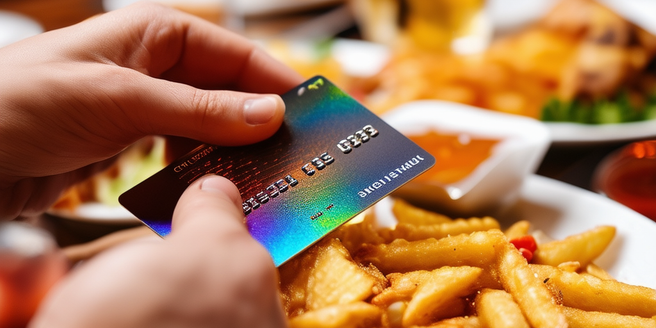
Understanding ‘Free’ in Free Credit Cards
The term ‘free’ in a credit card promotion usually means there’s no annual fee, a recurring cost associated with credit cards. Nonetheless, it doesn’t exempt you from other potential fees, which vary per each credit card’s fee structure. How you use your card can cause different charges, such as interest payments if you don’t pay the full balance within the grace period, cash advance fees for withdrawals from an ATM, and penalties for late or returned payments and foreign transactions. Hence, understanding the terms and conditions and using the card wisely can prevent these costs from rapidly accumulating, even in the absence of an annual fee.
The Products Behind Free Credit Cards
Credit cards offered for free often provide multiple benefits such as cashback on purchases, travel rewards, or insurance protection, making them highly valuable. Credit card issuers form strategic partnerships with prominent brands and retail chains to offer these services at no cost; they earn a portion of the transaction revenue whenever a cardholder makes a purchase at these partner venues. This model enables issuers to afford ‘free’ cards and reward programs, financed through this shared revenue. Hence, free cards are not cost-free but are funded from a share of transaction revenue from partner brands and retail chains, providing additional benefits for cardholders while ensuring a profit for the card company.
The Hidden Costs of Free Credit Cards
The term ‘free’ doesn’t always mean there are no costs, particularly in finance and credit, as individuals often encounter hidden charges like late payment fees or cash withdrawal charges. These costs, concealed in the fine print or from lack of explicit declaration, can accumulate quickly and turn what was initially seen as cost-free into a substantial expense. Hidden costs like high interest rates charged on not settled credit balances can turn ‘free’ offers expensive. So, the ‘free’ tag may initially seem attractive, but it’s critical to understand the potential hidden costs involved. Making hasty decisions based on initial appearances could be deceptive and cost you more in the long run.
Pros and Cons of Free Credit Cards
Free credit cards often come with enticing features such as rewards and no annual fees, however, potential cardholders need to be aware of their drawbacks too. The opportunity to earn while spending and not having to pay a yearly cost can be attractive. On the other hand, these free credit cards often have higher interest rates, which can lead to a cycle of substantial debt if not managed prudently. Furthermore, strict penalties for late payment can lead to unplanned financial burdens. Coupled with potentially limited customer service, these issues can outweigh the benefits. Hence, prospective cardholders should weigh both the pros and cons before deciding. It’s crucial to remember that just because a card is ‘free’ it doesn’t necessarily mean it’s without extra costs or problems. It’s in the best interest of consumers to fully understand terms before agreeing to any financial arrangement.
Risk Management with Free Credit Cards
The allure of a free credit card can be enticing, offering an additional line of credit without cost, but one must be aware of the associated risks. It’s easy to be captivated by the initial benefits of a free card but it’s important to acknowledge the potential drawbacks, such as late payment fees and high annual percentage rates (APR) on cash advances, that can quickly turn into financial nightmares due to their additional cost. It’s essential to read the fine print, where companies often detail their terms and conditions, as understanding these terms can prevent unexpected shocks later. Prudent financial planning is also key to avoid setbacks, as unplanned use often leads to unplanned expenses. In conclusion, while a free credit card is an attractive proposition, it’s also fraught with pitfalls, and the trick to managing these risks lies in studying the terms and conditions and proactive financial planning.
Making the Most Out of Free Credit Cards
To maximize the benefits of a free credit card, it’s crucial to employ responsible financial habits and a clear strategy for its usage. This includes paying off your balance in full every month to avoid accruing interest charges, which can compound expenses. It’s also recommended to use the card at brands and businesses partnered with your credit card company, ensuring you accrue points, cash back, and discounts. Also, use the card generously to pile up reward points that can then be redeemed for travel upgrades, cash back, or discounts on brands. Responsible and strategic use of a free credit card can offer substantial financial benefits, but it’s also crucial to frequently monitor card usage to avoid debt and balance maximizing rewards with maintaining financial stability.
